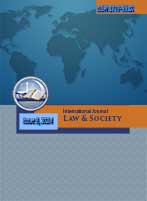Genocide: factors determining its commission (general approaches)
Keywords:
aggression of the Russian Federation, martial law, war crimes, genocide, factors of crimeAbstract
The two-year period that has passed since the beginning of the active phase of Russian aggression against independent Ukraine was marked by the aggressors committing a significant number of various crimes that were previously unknown to the practice of fighting crime in our country. In addition, the aggression became a catalyst for the commission of a number of previously unknown crimes committed by citizens of Ukraine against its national interests. This determines the need for legal scholars to address a number of issues that were not in the center of their attention before. One of these issues is the problem of criminal legal struggle and prevention of one of the heaviest crimes known to mankind - the crime of genocide. In recent years, the Russians have committed many acts that, according to the norms of international law, should be qualified as crimes of genocide. In addition to the direct legal evaluation of such acts, it is important to find out the factors that determine their commission. The complexity of the study of this problem lies in the fact that, unlike the study of the factors that determine the commission of a crime by a specific person, in this case, one should study the factors affecting the state as such, its legal institutions, political regime, etc.
This article is the first attempt in Ukrainian legal science to develop approaches and give a general description of the factors that determine the commission of crimes of genocide by Russia against Ukraine and its people.


